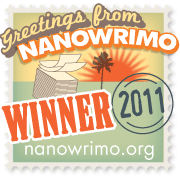I recently re-read City of the beasts by Isabel Allende, having forgotten that I found the characters unconvincing caricatures and the plot far too worthy and slow-moving to be engaging. It did make me wonder whether this book would have been picked up by a publisher if it wasn’t for the strength of her name and past work, which got me thinking more widely – would I even know who Isabel Allende is had she started her writing career writing for young adults (as in City of the beasts) rather than adults (e.g. The house of the spirits)? Personally I don’t think she’s convincing a as young adult writer and the inference that this was the new Harry Potter on the book jacket actually made me a little bit angry!
Other writers have crossed genres more successfully for me – such as Philip Pullman’s stretch from his children’s books to his fantastic fantasy series, His Dark Materials. I thought Stephanie Meyer’s The Host was brilliant and completely different to her YA Twilight saga. I’m sure you’ll have lots of examples of your own.
It got me thinking about genre and writing for a particular audience. Do you tend to keep to a certain genre or do you experiment with different audiences? I’m sure some writers are multi-talented and able to write convincing, engaging works in a range of genres (even if their publishers discourage it because it risks diluting their brand!) But I should think most of us have our comfort zones – perhaps the kinds of books we enjoy reading, or just a style that feels natural…
…but is it the right genre for you? Perhaps your heart lies with contemporary literature, but you’d actually be able to pen a pretty mean thriller; or you’re pushing a creative fantasy dream because it’s exciting when really your talents lie in the observational humour of chick lit.
Personally I’m still not confident I’ve found the right audience for my writing. I know what I’d be terrible at, but have I found the perfect home for my style yet? What do you think – how confident are you that you’re writing in the right genre to really make the most of your writing talents?
Maybe it’s good to experiment once in a while – test the water with different genres and audiences. You never know, you might find a whole new inner writer just waiting to be released!



